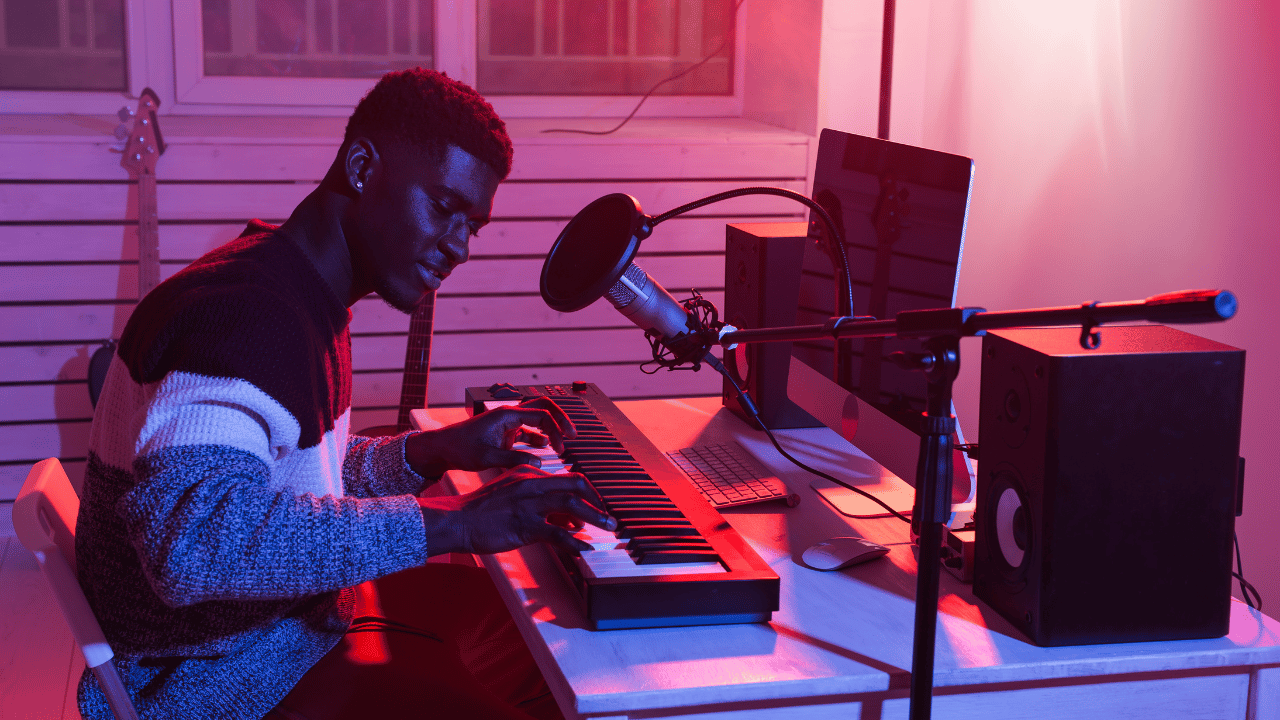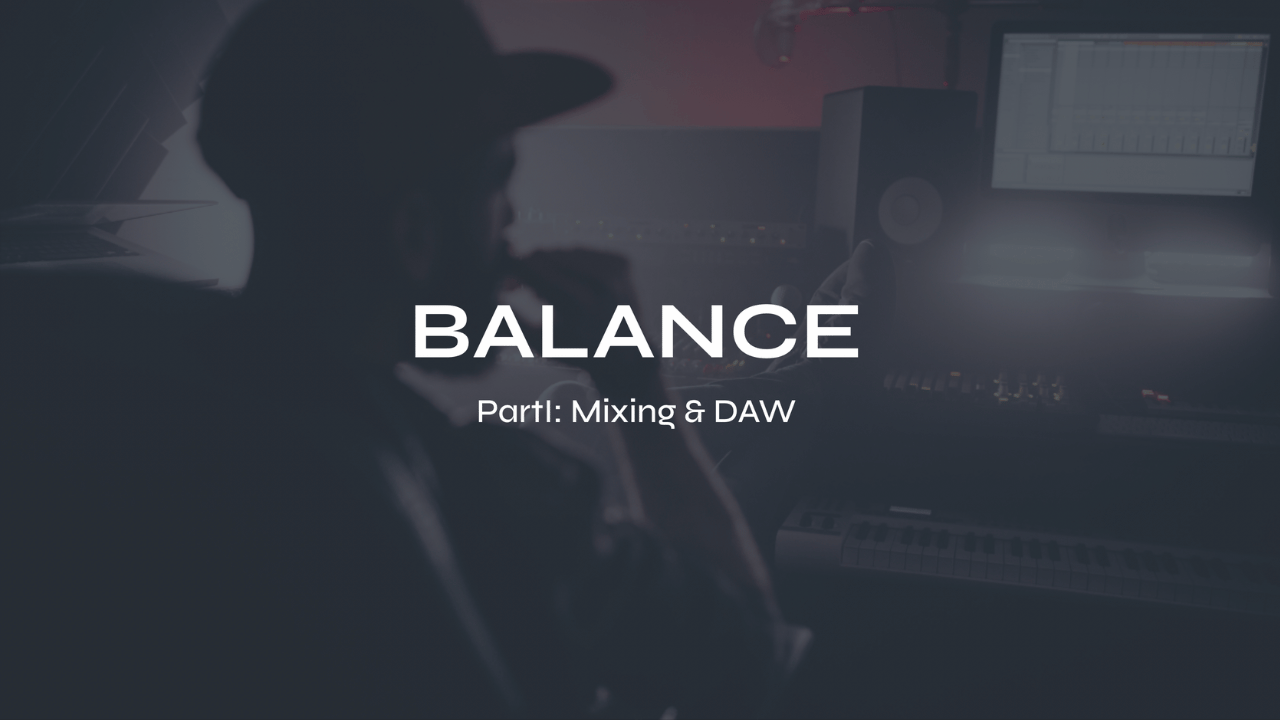How to Become a Music Producer from Scratch

Music production is the process of creating a song or a piece of music from an idea up to the finished product. It involves various aspects such as songwriting, arranging, recording, mixing, and mastering. Being a music producer is a fulfilling career, but it requires passion, dedication, and a lot of hard work. In this article, we'll discuss how to become a music producer from scratch and tips for beginners.

Read The Music Production Process: A Guide for Artists and Producers
Get Familiar with Music Software
The first step to becoming a music producer is to get familiar with music software. There are many music production software programs available, such as Ableton Live, Logic Pro, FL Studio, and Pro Tools. You can start by downloading a free trial version of the software and learning the basics.
Learn Music Theory
Understanding music theory is an essential aspect of producing music. It will help you create melodies, chord progressions, and basslines that sound good together. You can take an online course or attend a music school to learn music theory.

Take my FREE Ableton Live course
Practice, Practice, Practice
Practice is crucial to becoming a successful music producer. Spend time every day honing your skills, experimenting with different sounds, and exploring new techniques. You can start by creating simple beats and gradually working your way up to more complex compositions.
Network and Collaborate
Networking and collaborating with other producers and musicians is a great way to learn new techniques and get your name out there. Attend music festivals, workshops, and events to meet like-minded individuals and build connections.

Download my FREE Music Production Resources
Start with Simple Projects
Start with simple projects, such as creating a beat or a melody. This will help you get familiar with the software and build confidence.
Experiment with Sounds and Samples
Experiment with different sounds and samples to create unique and interesting compositions. Use effects such as delay, reverb, and distortion to enhance the sounds.
Get the Right Equipment
To record music at home, you'll need the right equipment, including a microphone, audio interface, and headphones. Invest in good quality equipment that will produce clear and professional-sounding recordings.

Create a Recording Space
Create a dedicated recording space in your home, such as a spare room or a corner of your bedroom. Make sure the space is quiet and has good acoustics.
Songwriting
Start by writing the song, including the melody, chords, and lyrics.mArrange the song by deciding on the structure and adding instruments.

Download my FREE Home Studio Setup Guide
Recording & Editing
Record the instruments and vocals using a microphone and audio interface. Make sure the levels are set correctly and there is no background noise. Edit the recorded tracks by trimming, cutting, and moving sections to make the song flow smoothly.
Mixing & Mastering
Mixing is the process of balancing and adjusting the levels of the individual tracks to create a cohesive and balanced sound. Use effects such as EQ, compression, and reverb to enhance the tracks. Mastering is the final step in music production, where the final mix is prepared for distribution. Use mastering software to make the track sound consistent and professional.
Develop Your Own Style
Develop your own style by experimenting with different sounds and techniques. This will help you stand out from other producers and create a unique sound.
Build Relationships
Building relationships with other producers, musicians, and industry professionals is crucial to success in the music industry. Attend events, network, and collaborate with others.

Learn Music Production Online
There are many online resources available for learning music production. Here are some options:
- Online Courses
Online courses such as Coursera, Udemy, and Skillshare offer courses in music production. These courses range from beginner to advanced levels and cover various aspects of music production.
- YouTube Tutorials
YouTube has a vast library of tutorials on music production. Search for specific topics or techniques and follow along with the tutorials.
- Online Communities
Online communities such as Reddit, Gearspace, and Future Producers offer forums and discussions on music production. Join these communities to connect with other producers and learn from their experiences.
In conclusion, becoming a music producer takes dedication, patience, and a willingness to learn. Follow these tips and techniques to hone your skills and create professional-quality music.
Futch - Music Production Coach and Ableton Certified Trainer
Check out my live online mixing course: BALANCE Part I:Mixing & DAW
BALANCE Part I: Mixing & DAW live online course
What you’ll get:
- 9 live online Zoom classes (each class is about 2.5 hours long)
scheduled to match the date & time availability of each cohort
- 9 on-demand video recordings of each module for review. You will always have access to these videos for reference.
- 9 module PDF reference guides.
- 9 assignments to practice what you’ve learned after each module
- Quizzes and self-assessments after each module to test your understanding of the concepts.
- A growing community of members to exchange feedback, ask questions and collaborate with.
- Educational discounts on select plugins and hardware from LEVELS partners for successful (80%) quiz results
100% Money-Back Guarantee - just contact support and let me know before class 5 starts. You will then lose access to everything.





